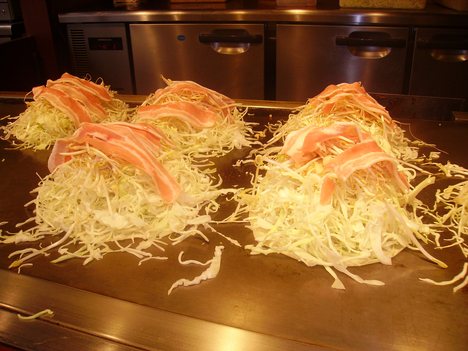
- Order:
- Duration: 3:36
- Published: 18 Oct 2010
- Uploaded: 28 Feb 2011
- Author: panlasangpinoy
Oyster sauce adds a savory flavor to many dishes, making it an ideal choice for flavoring meat and vegetables. The sauce is a staple for much Chinese family-style cooking. It is commonly used in noodle stir-fries, such as chow mein. It is also found in popular Chinese-American dishes such as beef with stir-fried vegetables. Oyster sauce can also be used as a topping for some dishes. ''(For examples see Kai-lan, Buddha's delight, Hainanese chicken rice, Cashew chicken, Lo mein, Cha siu baau, Yum cha, Har gow, Kai yat sai, Wonton noodles, and Daikon cake. For further information see Thai cuisine, Hmong cuisine, cuisine of Cambodia, Cantonese cuisine, Cuisine of Hong Kong, and American Chinese cuisine)
The joint Australia New Zealand Food Authority (ANZFA) said it had taken emergency action to amend its food standards code to set a limit for 3-MCPD in soy sauce of 0.02 milligrams per kilogram, in line with European Commission standards which come into force in the EU in April 2002.
Britain's Food Standards Agency (FSA) singled out brands and products imported from Thailand, China, Hong Kong and Taiwan. Brands named in the British warning include Golden Mountain, King Imperial, Pearl River Bridge, Jammy Chai, Lee Kum Kee, Golden Mark, Kimlan, Golden Swan, Sinsin, Tung Chun and Wanjasham soy sauce.
In July 2001, the FSA issued another statement clearing Lee Kum Kee's name after the company produced laboratory certificates from accredited, reputable laboratories. These certificates show that Lee Kum Kee products now comply with the proposed EU limit for 3-MCPD.
Category:Sauces Category:Chinese condiments Category:Philippine cuisine
This text is licensed under the Creative Commons CC-BY-SA License. This text was originally published on Wikipedia and was developed by the Wikipedia community.
During this time he taught Italian cooking lessons at weekends to supplement his college fees. This led him on to teach Chinese cookery classes. In 1977 he was invited to join San Francisco's new California Culinary Academy as an instructor.
The BBC then commissioned him to star in a new TV series on Chinese cooking named Ken Hom’s Chinese Cookery. The series was a success. The companion book became one of the best-selling cookbooks ever published by BBC Books, selling more than 1.2 million copies. As of 2008, the book remains in print.
Hom is an author of more than 20 cookbooks. Alongside his best known work on Chinese cuisine, his works also include topics on Cambodian, Malaysian, Thai, Singaporean, and Vietnamese cooking. He has worked as a consultant for hotels and restaurants and cooked personally for presidents, celebrities and royalty.
Hom also has his own range of cooking sauces, noodles and rice. These are available only in the UK.
Despite semi-retirement, he travels extensively worldwide and divides his time between France and Bangkok. In 2005, Hom was a contestant on a special Chef's edition of the BBC's The Weakest Link. He continues to make occasional radio and television appearances worldwide.
On 12 September 2007, Hom received an honorary doctorate from Oxford Brookes University, England in recognition of his "outstanding success within the international food world".
Hom was recently diagnosed with Prostate Cancer and has been receiving Radiation therapy in Japan.
Category:1949 births Category:American chefs Category:Living people Category:American people of Chinese descent Category:People from Tucson, Arizona Category:People from Chicago, Illinois Category:University of California, Berkeley alumni Category:Taishanese people
This text is licensed under the Creative Commons CC-BY-SA License. This text was originally published on Wikipedia and was developed by the Wikipedia community.











































